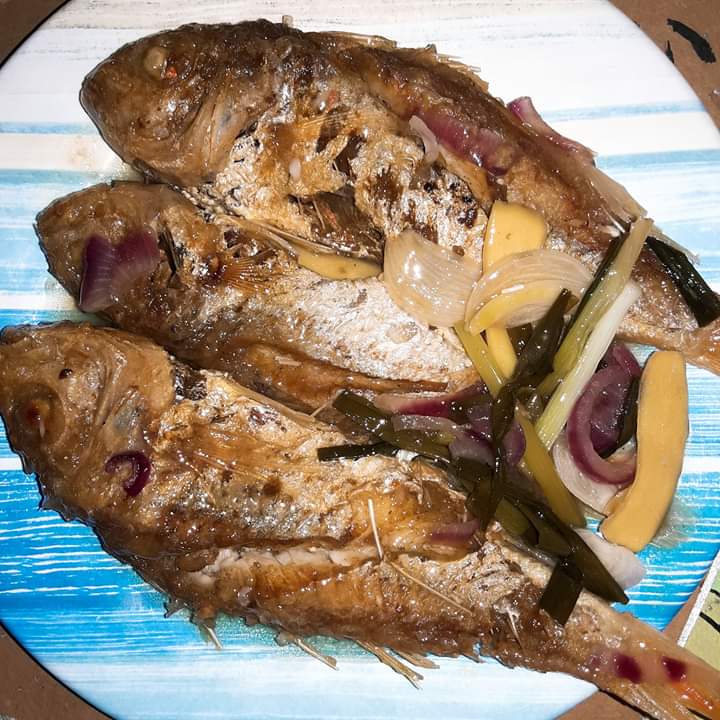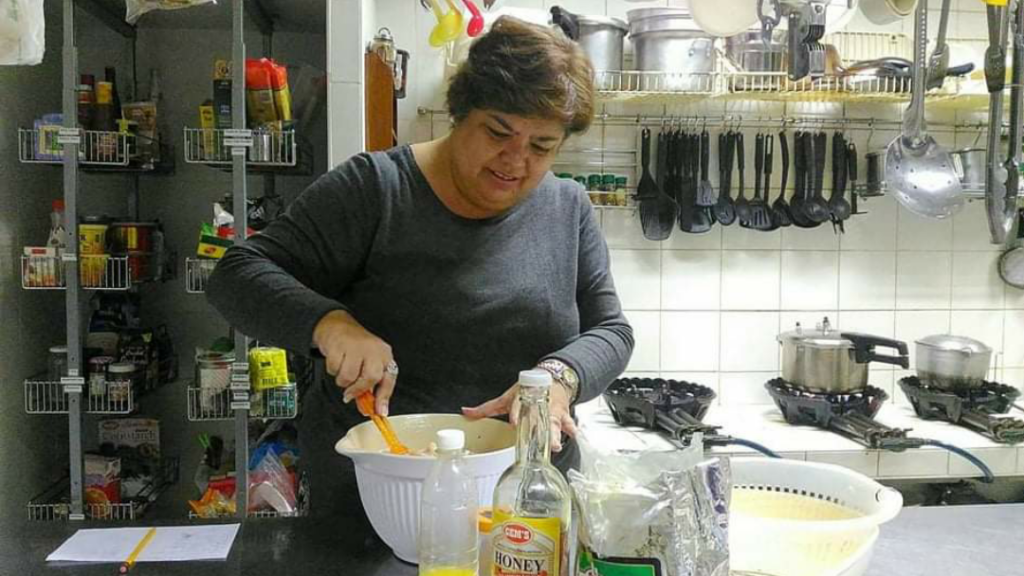To be honest, we would have escabeche meal every time we have left-over fried fish from lunch time. It is an auto dinner meal (interchangeably with cardillo and tausi. Since we had left over fried bisogo from lunch, this is the best time to remake the meal.

Like every other recipes, escabeche varies from household to household. It well-loved meal probably because of its good sweet and sour combination. Some would have the fish raw, but we are comfortable to fry the fish we will use for the dish.
Ingredients
Your left-over fried fish
1 medium onion sliced (sibuyas)
Leeks (dahon sibuyas)
1 medium ginger sliced (luy-a)
1 cup vinegar (langgaw)
5 cloves garlic crushed (ahos)
1/2 teaspoon salt (asin)
1/4 cup sugar (kalamay)
1/2 cup cooking oil (mantika)
cornstarch (optional)
turmeric powder (kalawag (optional))
Steps
- 1. The very first step we do at home is the creation of the sweet and sour mixture. In a bowl, mix the water, vinegar, salt and sugar. This way, you will already have the preset taste of your sweet and sour.
- 2. In a pan, heat oil. Then saute the garlic, onion, ginger and leeks.
- 3. Add the fish.
- 4. Add the sweet and sour mixture.
- 5. Let it simmer for 5 to 10 minutes.
- 6. If you want the sauce to be a little thicker, you can add cornstarch. If you want a little color, you can add kalawag.
Some sophisticated recipes would add carrots and bell pepper. (I don’t eat both so I don’t add them or else food waste). Carrots and bellpeper would also give your escabeche pops of colors – orange, green and red.
Eating escabeche is actually eating fried fish with a kick of atsara. People before use this method to preserve the food longer because of the vinegar.
This recipe would work to any fried fish you may have. It is just bisogo that we have when I wrote this post.
